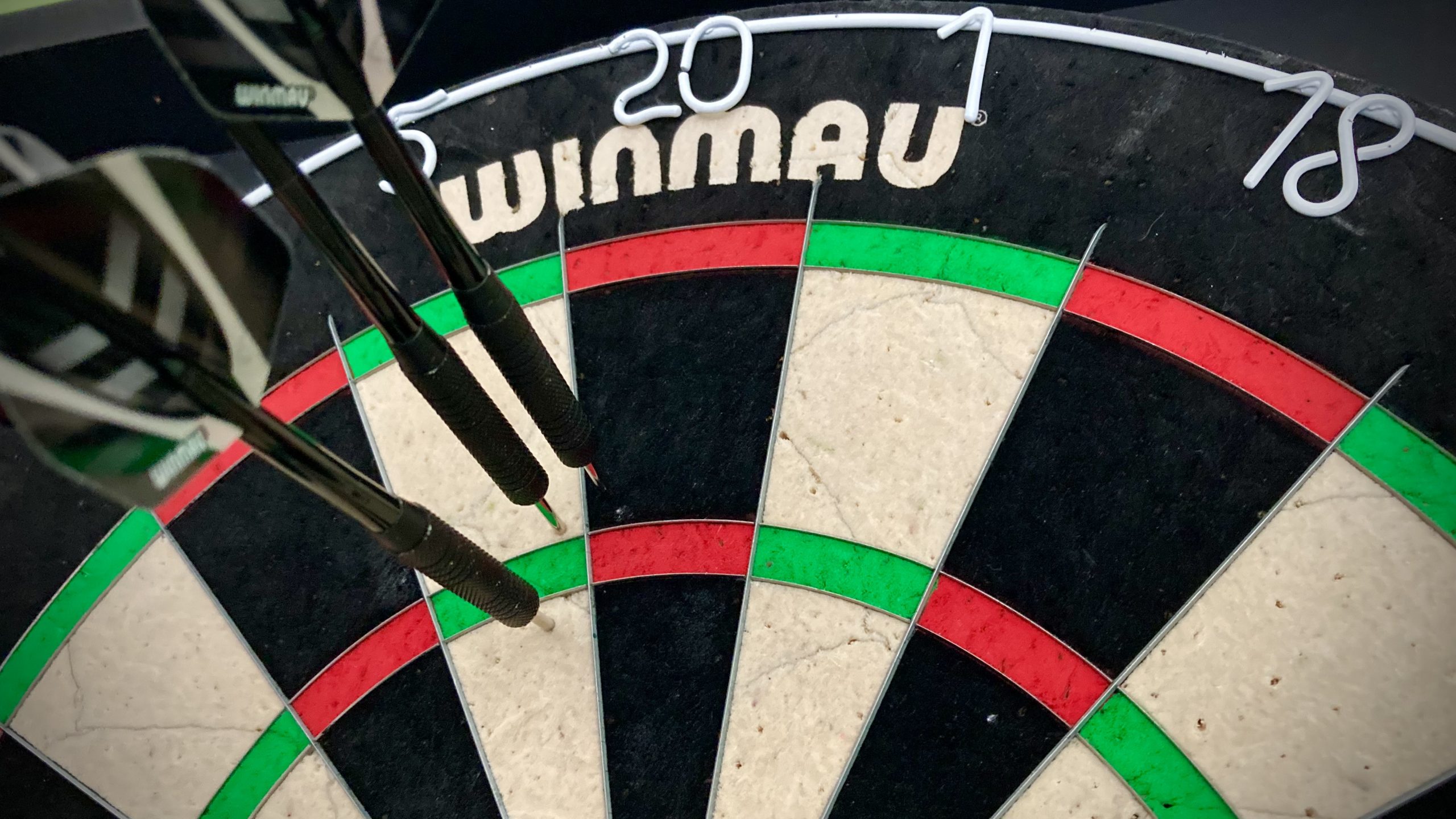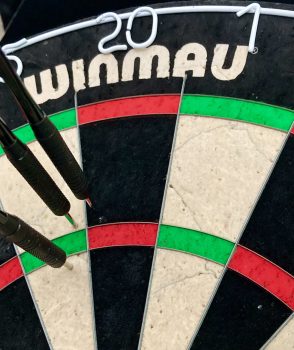Darts can be a game of fine margins. And in those tiny spaces between hitting a big number and getting only a low score lies a perfect demonstration of why it’s important for coaches (let alone players, parents and fans) to focus on performances over outcomes.
Consider the image above. It’s is a genuine picture from a game of darts I played recently. In one of my turns I threw three darts that landed just millimetres from the treble 20. Two landed either side of the treble 5. One landed in the 20, just above the treble bar.
I almost scored 180 – the perfect darts throw. I’m no darter and I’ve never scored a maximum before. This was the closest I’d come.
I actually scored 30.
Had I thrown with less accuracy I might have scored a far higher total. I could have hit – for the sake of argument – a 12, a 17 and a 6. Spraying the darts around the board like that would have scored 35. Better outcome. Treble 18, 3 and double 8 – arguably worse throws for a player aiming for treble 20 – scores a whopping 73.
Even a totally random trio of throws would likely get a higher score. Hitting the board with all three darts in random places would net 63 every two visits to the oche, on average. More, if one or more darts lands in a double or a treble. (Maths is not my strong point, but darthelp.com agrees that the average newcomer to the game can expect to score about 30 every visit.)
In other words, my three darts there were average (for a newbie) at best. Pah.
Long-term development
But here’s the thing: thinking about my long-term development as a darts player, it’s far better to score 30 with three darts that nearly hit their target than it is to score 73, 93 or 164 with three flukes. Hitting big scores occasionally with lucky shots is no sustainable way to win darts matches over time.

To nearly hit my intended target over and over again is a sign I’m doing the right things. Aim, technique, temperament must all be working okay, at least in that moment. Keep practising, keep focusing on the process, and the results will follow. In darts, that much is so, so obvious.
There are clear parallels with other sports too. In cricket, a batsman might be nearly hitting perfect cover drives – but be on a run of edging balls to the keeper or shelling them to mid-off. In football, a team might be able to string wonderful sequences of passes together but failing to find the right killer through-ball. And that marginal lack of penetration could mean they lose match after match to nil when a couple more chances per game could turn those scorelines into draws or wins.
Taking shortcuts is tempting
When we start being driven by outcomes, as in those examples, it’s so tempting to take shortcuts to drive better results at the expense of the processes we’ve been working so hard on.
To nearly hit your intended target over and over again is a sign you’re doing the right things.
For developing club cricketers, a hoik over midwicket can be a matchwinning source of quick runs. In football, a long boot downfield can be a relatively low-risk way of putting strikers through on goal while keeping the ball as far away from our own net as possible. Especially when players, parents and fans conflate good results with successful coaching or leadership. (Richard Gillis explores this phenomenon superbly in The Captain Myth).
But, as with randomly throwing darts at a dartboard, those methods aren’t going to develop the best players over time. It’s hard, but it’s really critical to keep doing the right things. As coaching legend Mark Bennett puts it, performance is a behaviour – not an outcome.
Read next: Is this the best football coaching book ever? Find out more about Doug Lemov’s The Coach’s Guide to Teaching

